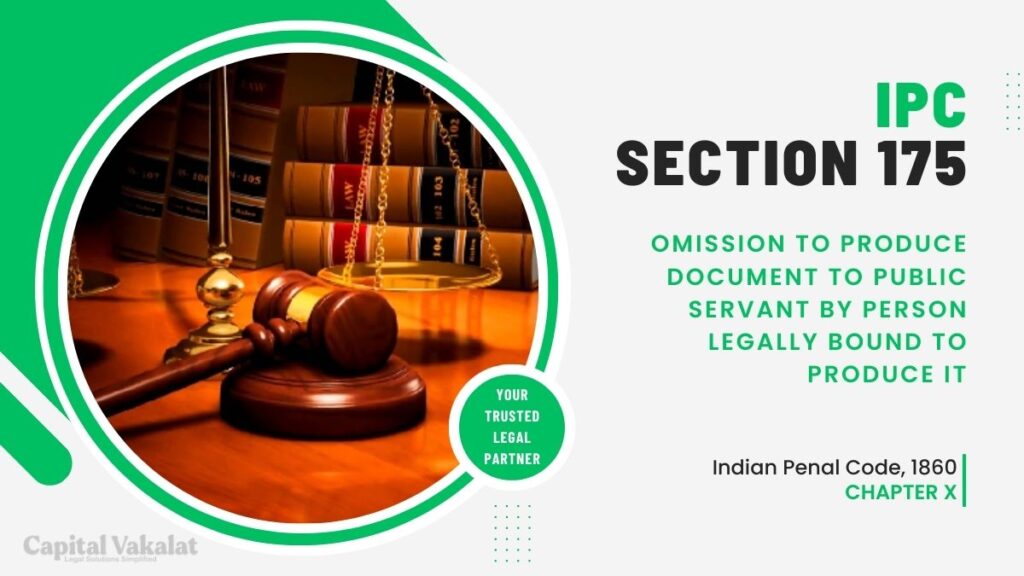In the realm of legal responsibilities and obligations in India, Section 175 IPC is a crucial provision. This section pertains to the omission to produce documents to a public servant by a person who is legally bound to do so.

To better understand the implications of this section, it is essential to delve deeper into its various aspects.
Understanding Section 175 IPC
The Indian Penal Code (IPC) is the primary criminal code of India, and Section 175 falls under its purview. This section deals specifically with the legal obligations of individuals to produce documents to public servants. It is crucial for maintaining transparency and accountability in public administration.
Who is a Public Servant?
A public servant, as defined by Indian law, includes government officials, officers, and any person employed in public administration. These individuals are vested with powers to carry out official duties on behalf of the government.
Legal Obligations of Producing Documents
Public servants often require specific documents and information to fulfill their duties effectively. These documents may vary but are typically related to legal, official, or administrative matters. Failure to produce these documents can hinder the functioning of government bodies.
The Omission to Produce Documents
Section 175 IPC deals with the offense of ‘omission’ to produce documents. Omission here refers to the act of neglecting, failing, or refusing to provide documents that a person is legally bound to furnish. This omission can be intentional or due to negligence.
Importance of Document Production
Producing documents is crucial in maintaining the rule of law and ensuring that public servants can carry out their responsibilities effectively. It promotes transparency and accountability in government operations.
Instances of Offenses Under Section 175 IPC
Offenses under Section 175 IPC can occur in various situations, such as when a person intentionally withholds information during an investigation or fails to produce documents requested by a public servant. In such cases, legal action may be taken against the individual.
Punishments and Penalties
The legal consequences for offenses under Section 175 IPC can vary depending on the circumstances. Penalties may include fines or imprisonment, and in some cases, both. The severity of the punishment is determined by the nature and gravity of the offense.
Case Studies
To understand the practical implications of Section 175 IPC, let’s consider a few case studies where individuals failed to produce documents to public servants and the legal actions taken against them.
Defenses in Section 175 IPC Cases
In some instances, individuals may have valid reasons for not producing documents. They can present defenses, such as lack of legal obligation, absence of intention, or other extenuating circumstances.
Challenges in Enforcement
Enforcing Section 175 IPC can be challenging, as it requires a thorough investigation and evidence collection. Public servants and law enforcement agencies must work diligently to ensure that the law is upheld.
Recent Developments
Legal provisions are subject to change and amendment over time. Stay informed about any recent developments or amendments related to Section 175 IPC to understand its current legal status.
Conclusion
Section 175 IPC plays a vital role in ensuring the accountability and transparency of public administration. Omitting to produce documents to public servants is not only a breach of legal obligation but also obstructs the functioning of government institutions.
Frequently Asked Questions
Who qualifies as a public servant under Indian law?
Public servants include government officials, officers, and individuals employed in public administration.
What are the penalties for offenses under Section 175 IPC?
Penalties may include fines, imprisonment, or a combination of both, depending on the severity of the offense.
Are there any defenses against Section 175 IPC charges?
Yes, individuals may present defenses such as a lack of legal obligation or extenuating circumstances.
What are the challenges in enforcing Section 175 IPC?
Enforcement can be challenging due to the need for a thorough investigation and evidence collection.